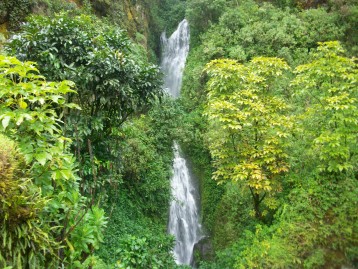Each time man’s will wheels against God’s will, God has most if not all of the time treated man with mercy and compassion.
In the Garden of Eden, Adam and Eve wheeled their wills against God’s; they ate of the forbidden fruits and God casted them out of the garden/His presence slamming various sanctions but later had mercy and compassion, and sent Jesus to redeem man from all these.
Nature is different! Each time man’s will wheels against nature’s will, nature has always paid man in his own very coins.

In the 1700s, man especially those from the West depleted natural resources establishing factories etc. Trees were cleared to feed the factories. Those of the developing world sacrificed the forest for farms and on the altar of livelihood. This was man wheeling his will against nature’s wheel. Little did man know that nature was not like God.
Today, nature’s wrath is wagging against man; nature has gone ‘hot’! Man calls it climate change. It has become so serious that man has termed it “the biggest global health threats of the 21st Century”. One of sectors that has seen the ugly face of climate change in recent years has been the agricultural sector.
Agriculture remains the driving force behind Cameroon’s economic development with statistics indicating that about 80% of the poor in the country live in rural areas and depends on agriculture for their livelihood. Water, temperature and light which are indispensable for food production.
Crops and plants need enough moisture especially during germination and fruit development but rainfall needed to generate such moisture is hardly available during these stages in most part of the country. This, couple with the prevalence of pests and diseases, has greatly reduced agricultural productivity in must rural communities of Cameroon leading to increase food prices in the market.
For instance a bag of groundnut that was sold in the Ngoketunjia Division at cfa 15,000 in 2006 now sells at cfa 50,000. It is a similar plight with maize, potatoes, rice cassava production in other parts of the North West Region; cocoa and banana production in the Center and South West Regions, cotton and nillet production in the North and Far North Regions and vegetable production in the West Region of Cameroon.
The impact of climate change on food production has become a global concern. It has been so perennial in recent years that the Food and Agricultural Organization of the United Nations has placed the 2016 World Food Day under the theme: “Climate is changing. Food and agriculture must too” with a call on countries to redress food and agriculture in their climate action plans and invest more in rural development.
This points to the fact that man must subject his will to nature’s will for nature’s wrath to subside.
Ndimuh Bertrand Shancho







